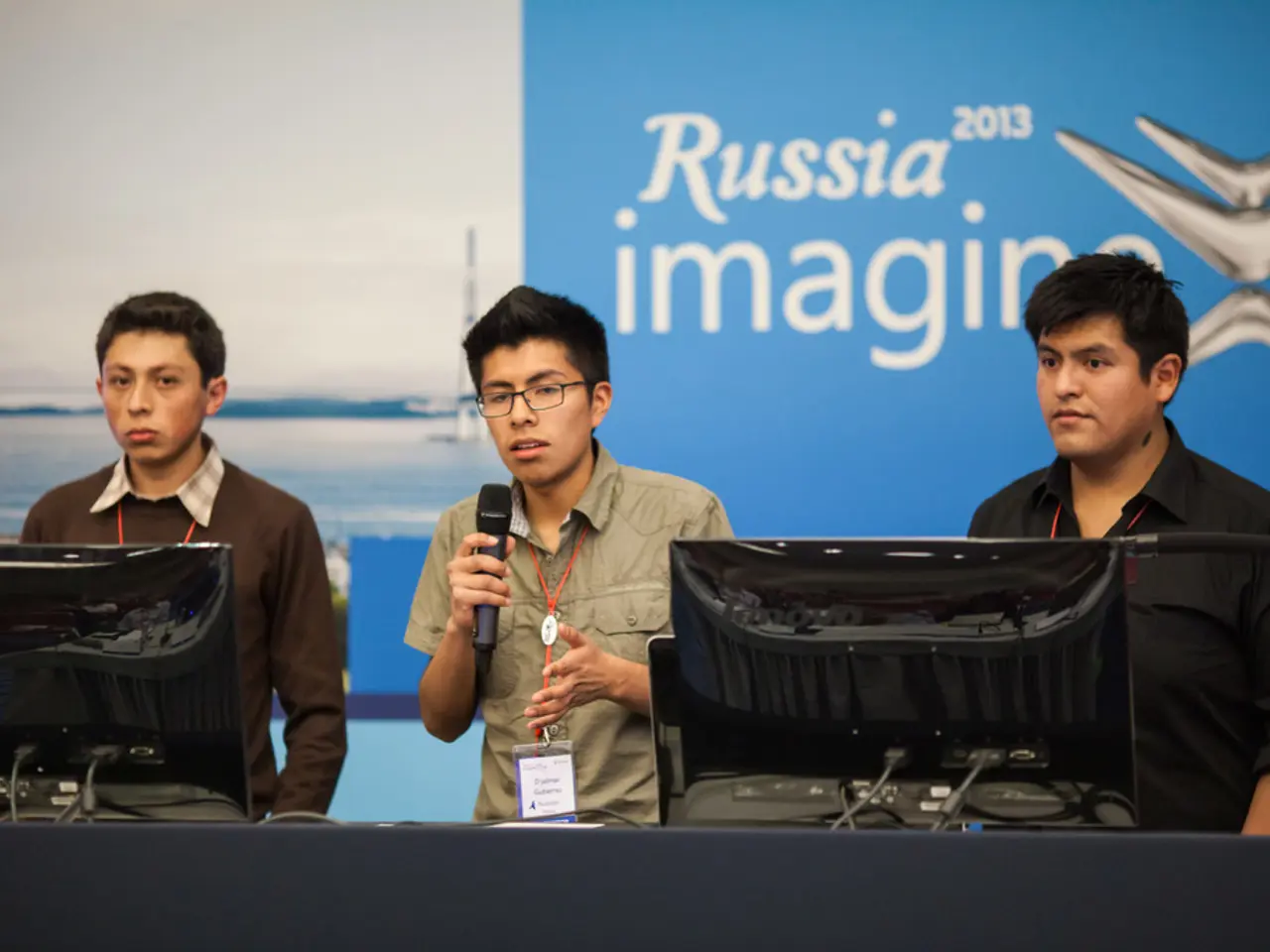Trump's agreement with Nvidia jeopardizes America's security, potentially auctioning it off to the highest sponsor
Nvidia and AMD Strike Controversial Deal to Resume AI Chip Exports to China
In a move that has sparked intense debate, Nvidia and AMD have reached an agreement to pay the U.S. government 15% of their sales revenue from advanced AI chip exports to China. This arrangement has allowed them to resume selling chips like Nvidia’s H20 accelerator and AMD’s MI308 processors to China, following a U.S. ban.
The deal, which has been described as "bizarre" and a form of "crony capitalism," has raised concerns about national security, legality, and economic strategy. Six Democratic Senators, including Chuck Schumer and Elizabeth Warren, have expressed serious alarm, arguing it risks U.S. national security by effectively allowing a commission on technology sales to a strategic competitor.
Legal experts question the deal’s conformity with the U.S. Constitution's Export Clause and the Export Control Reform Act of 2018, which prohibits fees associated with export licenses. The legality of extracting revenue as a percentage of sales under export control laws is described as murky and unprecedented.
In retaliation, China has imposed harsh restrictions on Nvidia, with the company reportedly instructing suppliers to halt production of certain chips intended for China. This operational uncertainty despite the deal has led to Nvidia writing down $5.5 billion due to the halted H20 chip sales and estimating the restrictions cost it $8 billion in Q2 2025 alone.
Treasury Secretary Scott Bessent has defended the revenue-sharing as a "unique solution" and potential model for other sectors, stating the proceeds could help pay down the national debt. However, some trade professionals and investors view the arrangements as potentially corrupt, with one export control official under George W. Bush stating that it seems like bribery or blackmail.
Despite the controversy, none of the reports mention formal accusations or investigations into corruption or bribery related to Nvidia, AMD, or U.S. officials in this deal. Nvidia has a written anti-corruption policy that bars the provision of money or anything of value to obtain regulatory approvals or business benefits.
The H20 chips are outmoded for some AI applications compared to Nvidia’s top-of-the-line Blackwell series, which are still subject to a U.S. export ban. Nvidia denies that the H20 chips contain any back-door exposure. Chinese regulators have been pressuring domestic companies to avoid the H20 chips due to cybersecurity concerns.
The effect of this deal on other companies raises concerns among economists and trade experts. For Nvidia, the immediate effect of the export deal doesn't seem all that significant. The company reported a pre-tax profit of $84 billion on sales of $130.5 billion for its last full fiscal year ended Jan. 26, despite the U.S. ban on H20 sales.
The details of the deal are murky and have not been reduced to writing. In May, the company announced a $4.5-billion writedown of unsold H20 inventories due to the U.S. ban on H20 sales. Nvidia made a $1-million contribution to Trump's inaugural committee, and its CEO met directly with Trump to discuss the export ban.
Donald Trump's transactional approach to policy-making resulted in chipmakers Nvidia and AMD securing licenses to export their products to China, with both companies agreeing to pay 15% of their revenues from such sales to the White House. The Chinese government isn't enamored of the H20 chips, and the effect of this deal on other companies remains to be seen.
- The controversial deal between Nvidia and AMD to resume AI chip exports to China involves paying 15% of their sales revenue to the U.S. government.
- The deal has sparked debate, particularly over national security, legality, and economic strategy, with six Democratic Senators voicing concern.
- Legal experts question the deal's compliance with the Export Clause of the U.S. Constitution and the Export Control Reform Act of 2018.
- The deal's legality regarding extracting revenue as a percentage of sales under export control laws is described as murky and unprecedented.
- China has retaliated with harsh restrictions on Nvidia, causing operational uncertainty and financial losses.
- Treasury Secretary Scott Bessent defends the revenue-sharing as a potential model for other sectors, with the proceeds possibly helping pay down the national debt.
- The effect of this deal on other companies and the economy is a concern among economists and trade experts, with the immediate impact for Nvidia not appearing significant.




